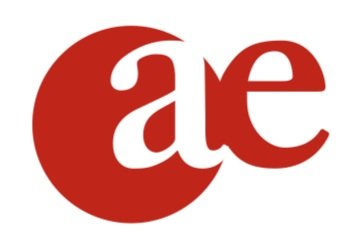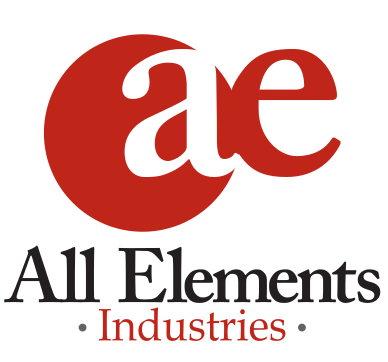FAQs
◦
FAQs ◦
AC & HEAT PUMPS
-
High-efficiency air conditioners are more energy efficient than older or more basic AC units. A SEER rating of at least 13 is necessary to qualify an air conditioner as high-efficiency. Higher efficiency means lower energy bills!
All Elements Technicians can help you find a high-efficiency air conditioner that fits your living space and budget. We’ll always optimize your HVAC systems for better performance as part of any AC installation.
-
Several factors impact an air conditioning installation timeline. These include:
• The quality of existing ductwork in your home and whether or not we are adding ductwork.
• The size and space we are working with to install your central air conditioning. Cramped spaces can increase installation time.
• The size and model of your AC unit.
• Ease of access to the installation areas.
All Elements Technicians do their best to give you an accurate quote on expected installation timelines. That said, many new AC installs can be completed within one day. But we’ll always communicate expectations before your purchase.
-
Your new air conditioner will always benefit from proper care and routine maintenance. You can expect well-maintained units to last up to 15 years. All Elements offers a 10-Year Parts & Labour Warranty on our York and Fujitsu cooling equipment installs.
Our AC installations are completed with the utmost attention to detail and designed to maximize each model’s lifespan. Dealing with AC repairs swiftly, as your unit reaches the decade mark, is another way to help your cooling system last longer.
-
The decision to replace or repair cooling equipment should always be made with the advice of our experts at All Elements. We can evaluate the age and health of your system and give you a realistic forecast for future repairs.
Every home’s cooling is unique. But generally, an air conditioner 10 years or older should be considered for an upgrade. As HVAC systems age and the repair frequency increases, there comes a time when a new cooling system will save you money in the long run.
-
The most obvious clue that your air conditioner is broken is…no cool air! But more subtle signs can also tell you something is wrong with your AC. These include:
• Reduced airflow when your AC is turned on.
• Strange smells or odours (musty) when your AC is operating.
• Unusual or loud noises are coming from your air conditioner.
• Higher energy bills than you’re used to.
• Difficulty maintaining a constant temperature in your home.
If you notice any of these changes, it’s best to call All Elements for a diagnosis before the problems get worse.
-
While some cooling repairs can’t be avoided, annual care and maintenance can reduce the risk of unforeseen problems. Annual Safety Checks give our professionals a chance to assess your home’s cooling system and recommend the best steps for comprehensive care.
Safety Checks not only prevent major AC repairs from occurring but also help increase the efficiency of your air conditioning system.
-
Sometimes, it might make more sense to replace your air conditioning system instead of paying for another repair. If your AC breaks down often, it might be time to get a new air conditioner. Consider the following when deciding to replace your air conditioner:
• Is your air conditioner over 10 years old?
• Does your unit require frequent repairs?
• Are your energy bills climbing?
• Is it difficult to cool your entire home with your current AC?
At All Elements, our pricing is honest and upfront. Our AC technicians assess your broken air conditioner and help you decide on the best steps for keeping your home comfortable all summer.
-
Getting to the bottom of an AC issue usually requires the help of a professional HVAC technician. Our experts run full diagnostics on your cooling system to determine the best way to get it working right.
But here are some things you can look for yourself to keep the cool air flowing freely. Check for the following while you’re waiting for one of our service techs:
• Make sure your thermostat is at the right temperature and set to COOL mode.
•Take a look at your AC filter. If it’s clogged or blocked, this can affect cooling.
• When condenser coils are frozen, it can prevent them from properly cooling. If this is the case, turn off your air conditioner so the coils can thaw.
• The register takes air back into your AC system. If this area is blocked or covered, it can affect air temperature.
-
Yes, HVAC air filters must be replaced periodically to maintain peak performance. This should be done every 3 months. Dirty air filters slow airflow and reduce your air conditioner’s efficiency. And poor efficiency leads to higher energy bills!
If your air conditioning is not performing properly, checking for a dirty air filter is a good place to start.
-
During an Annual Safety Check, a technician inspects and tests your AC equipment for health and performance.
Maintenance is also a great way to prevent major repairs or damage from occurring. Our specialists get a chance to evaluate your AC and make recommendations for preventative measures that will save money down the road.
-
Refrigerant is the fluid inside your AC condenser that cools air passing through the system. When this fluid is too low, it can lead to an air conditioner that isn’t cooling! Look for these signs to spot low refrigerant:
• Hissing or bubbling sounds from your AC unit.
• Ice is forming on refrigerant lines.
• Air is blowing, but it’s not cold.
Air conditioner checkups give our HVAC techs a chance to check refrigerant levels. You don’t want to be caught without working AC on the hottest days! So help your cooling system with an annual safety check.
-
It’s best to get an AC Check-up before the heat waves start. When a technician inspects your air conditioning system, they ensure everything is working properly and ready for summer.
A service professional can suggest any repairs or upgrades to avoid AC emergencies when the heat is sweltering. So think about scheduling your AC Annual Safety Check in the spring or early summer.
FURNACE
-
High-efficiency furnaces have an AFUE (Annual Fuel Utilization Efficiency) of at least 90% and sometimes as high as 98.5%.
Standard-efficiency furnaces convert roughly 80% of the energy from the gas into heat.
So basically: high-efficiency furnaces use less fuel.
-
Several factors impact the timeline of a heating system installation. These factors include:
• The type of equipment being installed.
• The quality of existing ductwork in your home and whether or not we are adding ductwork.
• The space we are working in to install your furnace.
• Ease of access to installation areas. Cramped spaces can increase installation time.
All Elements Technicians do their best to give you an accurate quote on expected installation timelines. The majority of furnace installs can be completed within one day.
However, we will always communicate expectations before your purchase.
-
The lifetime of any HVAC equipment is influenced by maintenance habits and the demands on the system. With annual safety checks and proper care, new furnaces can last up to 15 years or more.
All Elements Industries offers a 10-Year Parts & Labor Warranty on all YORK Furnace installations.
When you upgrade your furnace, you’ll enjoy the peace of mind that your equipment is covered.
-
The price of a new heating system will vary depending on your heating requirements. The following factors influence installation price:
• The heating capacity of your equipment (size).
• The make and model of your furnace.
• Whether new ductwork needs to be installed.
• The features and ratings of your equipment.
When calculating the costs of a furnace replacement, consider the monthly energy cost savings that a modern furnace can provide.
A.E.I staff are knowledgeable about the current FortisBC Rebates and can assist you on how to apply.
-
Make sure your thermostat is set to a temperature where the heat will come on. Your thermostat setting should be on “heat” to ensure that your thermostat alerts your furnace to run. Check that the thermostat batteries are working and replace them if needed.
-
When was the last time you changed your furnace filter? A dirty filter can prevent your furnace from producing and spreading heat. We recommend you change your filter seasonally (every 3 months).
-
Check that your outside venting (located on the side of your house) is clear of debris, ice, or snow to ensure the vent isn’t clogged.
-
Try resetting your furnace. There will be a light switch (on the wall or ceiling and should be marked furnace) that you’ll need to turn off for about a minute or two. Switch it back on and see if the furnace starts cycling on and resumes normal operation.
-
Yes, furnace air filters must be replaced periodically to maintain peak performance. Ideally, this should be done every 3 months. Dirty air filters slow down airflow and reduce the efficiency of your equipment.
Checking for a dirty air filter is a good place to start if your furnace is not performing properly.
-
Taking care of your furnace will extend the life of your unit and increase efficiency. Annual Safety Checks and maintenance are also great ways to prevent major repairs or damage from occurring. Our specialists get a chance to evaluate your furnace and make recommendations for preventative measures that will save money down the road.
-
If your furnace is producing warm air but you can’t seem to get the desired temperature, it could mean your thermostat is faulty. Try adjusting the temperature up and see if your system reacts.
The temperature sensor could be malfunctioning, in which case you’ll want to call an HVAC service tech.
Upgrading to a smart thermostat is one way to improve the efficiency of your heating system. Our service specialists test and calibrate your thermostats during an annual safety check.
-
You want your home to be prepared for the colder months, so schedule a furnace Safety Check before the winter starts. When a technician inspects your heating system, they ensure everything is working properly and ready for winter.
A service professional can suggest repairs or upgrades that will avoid heating emergencies when the weather is coldest. Think about scheduling your Annual Safety Check in early autumn.

